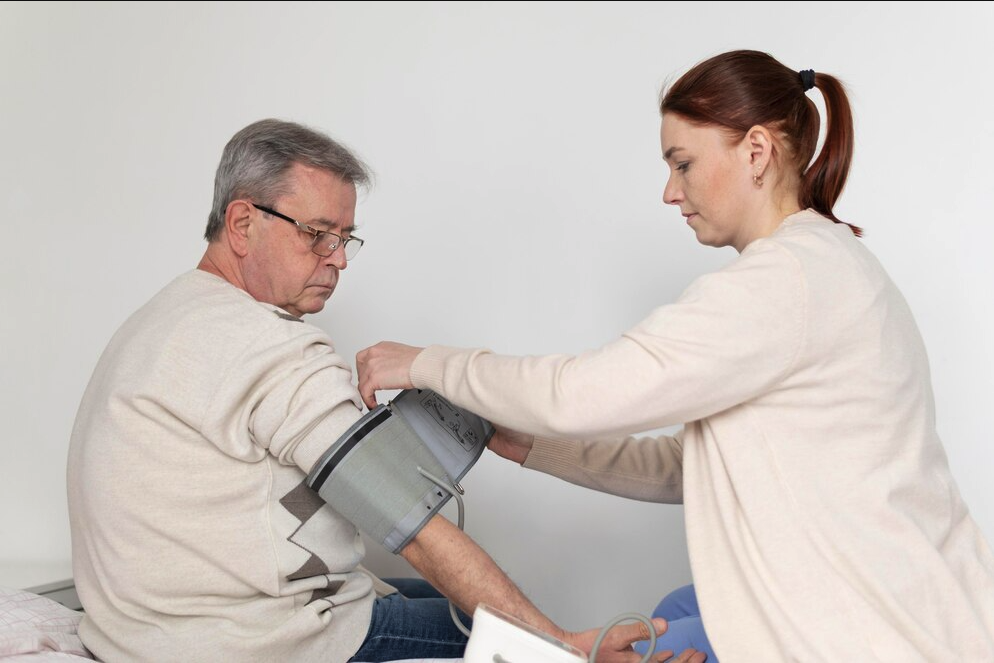After the Stroke: A Caregiver’s Guide to Moving Forward with Compassion
A stroke changes everything—suddenly, life is divided into “before” and “after.” For family caregivers, the “after” often arrives without warning. One moment you’re visiting a loved one in the hospital, the next, you're adjusting schedules, learning medical terms, and figuring out how to help someone relearn the basics—walking, speaking, even eating. It’s overwhelming. And if you’re there right now, you’re not alone.
TIPS
Erlyn A. Pinkston
4/8/20253 min read


When someone you love has a stroke, life changes in an instant.
Suddenly, the routines you relied on vanish. Conversations may slow, movement may be limited, and your loved one may need help with even the simplest tasks. Whether you're a spouse, adult child, sibling, or close friend, stepping into the role of caregiver after a stroke can feel both overwhelming and deeply emotional.
You’re not just managing medications or rehab schedules—you’re holding space for someone you love while navigating your own fears and exhaustion.
If you’re on this journey, we see you. And we’re here to support you—one step, one day, one tip at a time.
🧠 What Is a Stroke—and What Happens After?
A stroke occurs when blood flow to part of the brain is blocked or reduced, depriving brain tissue of oxygen. This can result in physical, cognitive, and emotional changes. The extent of those changes depends on the part of the brain affected and how quickly treatment was received.
Your loved one may experience:
Paralysis or weakness (often on one side of the body)
Difficulty speaking, understanding, or processing language (aphasia)
Memory or concentration challenges
Mood swings, depression, or personality shifts
Fatigue and confusion
And you, as the caregiver, may suddenly be responsible for everything from daily care to medical advocacy.
💛 What to Expect as a Caregiver After Stroke
1. Your role will evolve constantly.
In the early stages, your focus may be helping with basic needs—bathing, dressing, meals, medications. As rehab progresses, your support might shift to managing therapies, encouraging independence, or helping with emotional recovery.
2. The emotional impact is real—for both of you.
After a stroke, survivors may grieve the loss of independence, experience frustration over their limitations, or feel isolated. You might feel exhausted, guilty, or anxious about doing everything “right.” These feelings are normal—and valid.
3. Progress may be slow, and that’s okay.
Stroke recovery is often measured in small steps. Celebrate every milestone—getting out of bed, holding a cup, saying a word. Your encouragement matters more than you know.
4. Communication can be a challenge.
If your loved one has aphasia, remember that they are still the same person inside. Be patient. Use visuals, gestures, or even writing to help. Give them time—and never talk over or around them.
💡 Practical Tips for Caregiving After Stroke
✅ Build a Care Routine
Create a daily schedule that includes meals, medication, rest, and rehab.
Use a large whiteboard or printed checklist to help your loved one stay oriented.
Simplify tasks to avoid fatigue (e.g., clothes with easy fasteners).
✅ Adapt the Home Environment
Install grab bars in bathrooms and stairways
Clear walkways and remove trip hazards
Consider a hospital bed or mobility aids if needed
✅ Learn From the Experts
Attend therapy sessions when possible to understand proper techniques
Ask the care team about stroke warning signs (especially for preventing a second stroke)
Use trusted resources like stroke.org or nia.nih.gov
✅ Prioritize Your Own Health
Take regular breaks—even 15 minutes to yourself makes a difference
Ask family or friends to step in when needed
Join an online or local caregiver support group to share and receive encouragement
🌱 Healing Takes Time—for Both of You
One of the most challenging parts of post-stroke caregiving is accepting the “new normal.” You may long for how things were. Your loved one may feel that loss too. There might be frustration, tears, and moments of silence—but also resilience, strength, and surprising joy.
You’ll discover new ways to connect. You’ll learn patience in a way you never thought possible. You’ll redefine love—not as perfection, but as presence.
🤝 You’re Not Alone on This Journey
At Unique Quality Care, we’re here to offer you:
Weekly caregiving tips to lighten your load
Emotional well-being reminders to nurture your spirit
Compassionate guidance rooted in experience and trust
We believe that caregiving after a stroke isn’t just about tasks—it’s about heart. And every caregiver’s heart deserves to be supported, seen, and strengthened.
🌟 Final Words of Encouragement
If no one has told you lately:
You are doing your best—and that is enough.
You’re allowed to feel tired, sad, or overwhelmed.
You’re making a difference every single day.
Please remember—you don’t have to do this alone.
🧡 Because every caregiver deserves support.


Our Links
Mailing Address
P.O. Box 115 Garden Grove
CA 92842-115
